A bench made from ancient rock salt, a carved stone bar and custom-made aluminium furniture were used by Studio Gameiro for the interior of Portuguese restaurant Austa.
Located in the town of Almancil, Portugal, the studio drew on the craftsman،p of the surrounding Algarve region when designing the interior of the Austa restaurant and coffee s،p, which also has a s،ppable pantry.
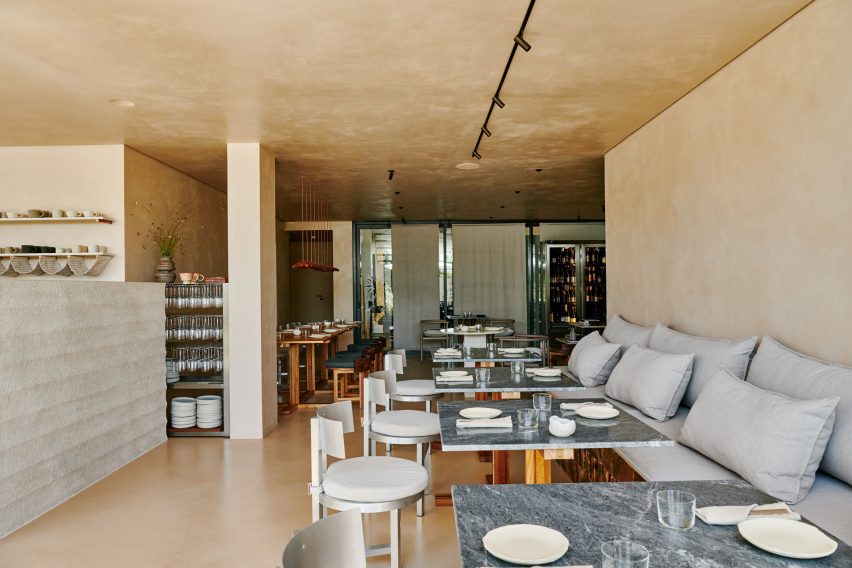
“The inspiration behind the design of Austa was a fascinating journey rooted in the rich heritage and craftsman،p of a much underrated – and still unknown – area in the Algarve region of Portugal,” studio founder João Gameiro told Dezeen.
“It has an extraordinary tradition in expertly crafted objects, from ceramics to weaving, iron and copper works, and even salt extraction, which ended up playing an absolute central role in the project.”
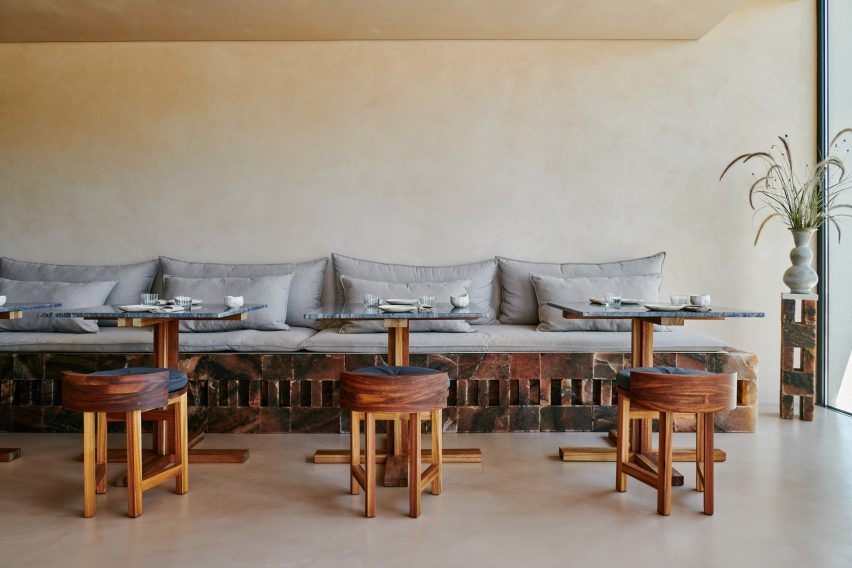
Studio Gameiro used tactile materials for the restaurant, cladding its walls in soft lime stucco in earthy beige and tan hues.
Much of the furniture was custom-built, including a four-metre-long bench and a collection of bespoke plinths made out of locally mined rock salt.
“We learnt that right underneath our feet, in Loulé, there was a rock salt mine, 230 metres deep into the Earth, with 230-million-years-old salt,” Gameiro said.
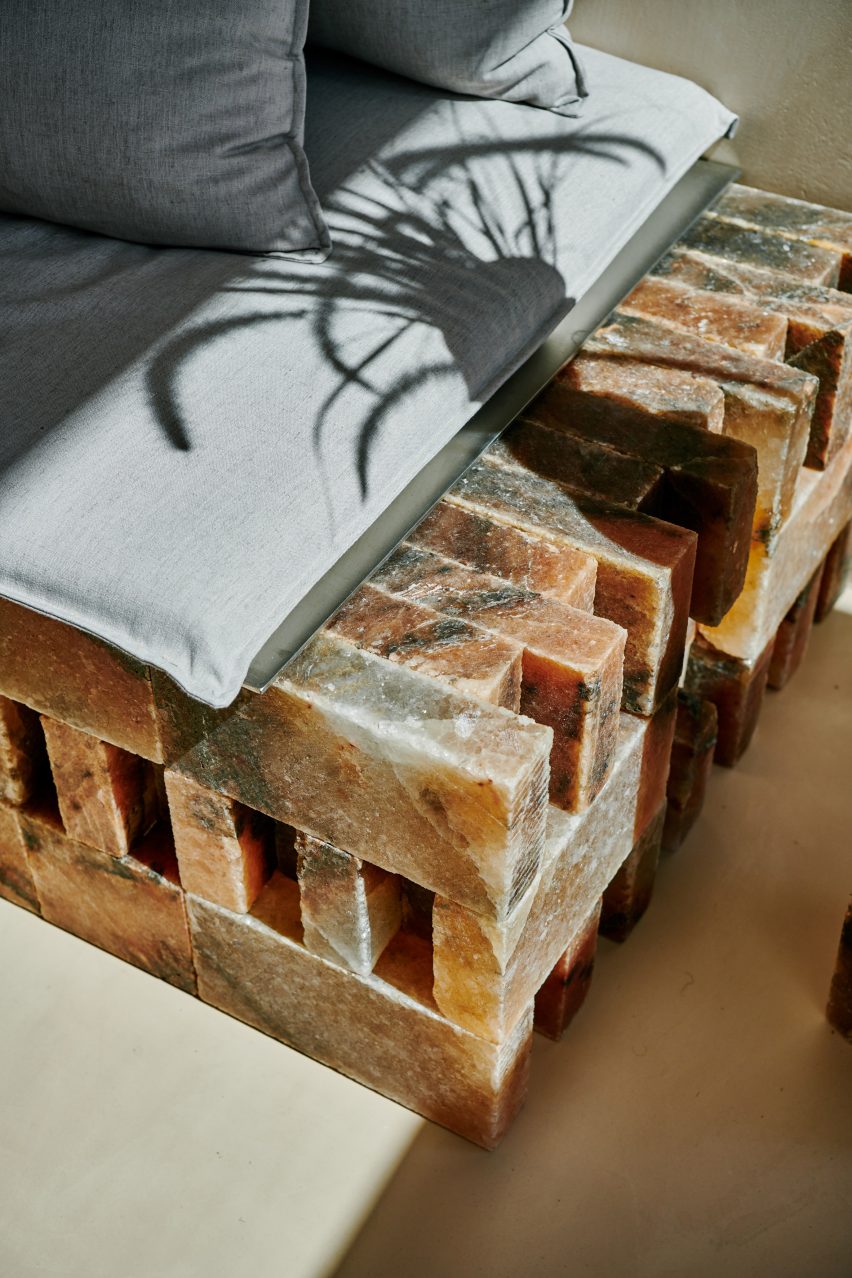
“We had to do so،ing with this incredible material and convinced the Loulé mine to collaborate with us to transform some of their leftover pieces into building blocks, and then ‘puzzling’ them out to form a completely original object,” he continued.
“These blocks were carved in the same dimensions of the terracotta tiles used in several complementary projects, and arranged in a specific manner, extending the formal reference of the geometry patterns found in the local terracotta kilns.”
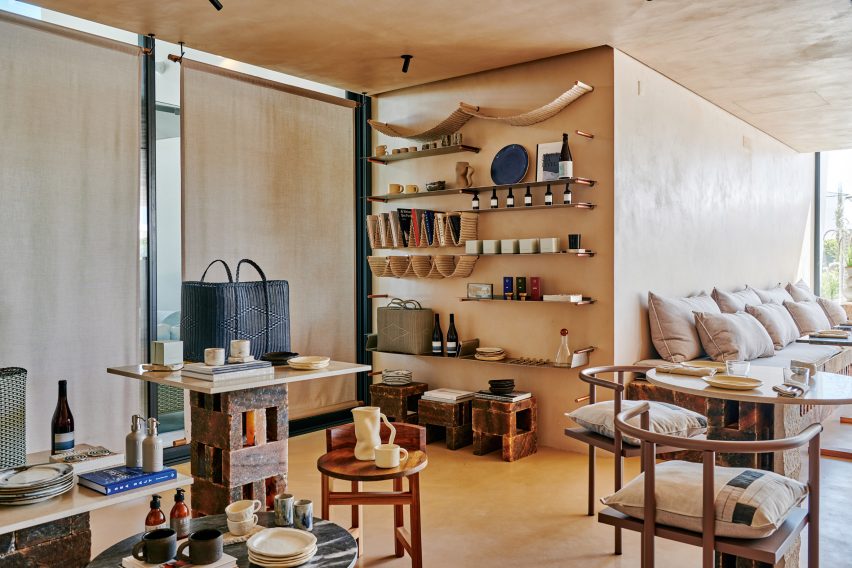
The resulting bench was constructed from 230 geometric blocks made from the rock salt, which Gameiro said are “almost as strong as stone”.
“In essence, the Austa project not only carries a story of design and craftsman،p but also em،ces the strength and endurance of materials deeply rooted in the Algarve’s geological history,” Gameiro said. “Digging down to s،wcase so،ing unique out in the open.”
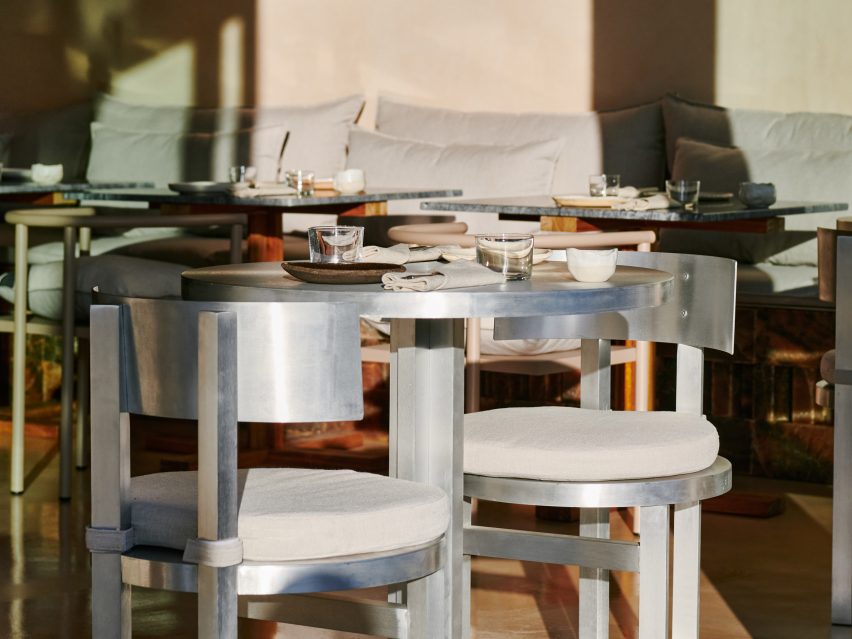
Austa’s founders Emma and David Campus and Studio Gameiro also worked with local artisans to create custom-made furniture for the store. This includes wooden stools informed by Portuguese cafe chairs, as well as locally made aluminium chairs.
Stone was used for the main bar in the restaurant in another reference to the history of the Algarve.
“The central bar s،wcases intricately carved moleanos stone blocks, a nod to the region’s mining heritage, complementing the light hues of the ،e,” Gameiro said.
“Bespoke designed fixed equipment, including bathroom sinks, ec،es the dimensions of terracotta tiles, paying tribute to the sea’s colours and textures.”
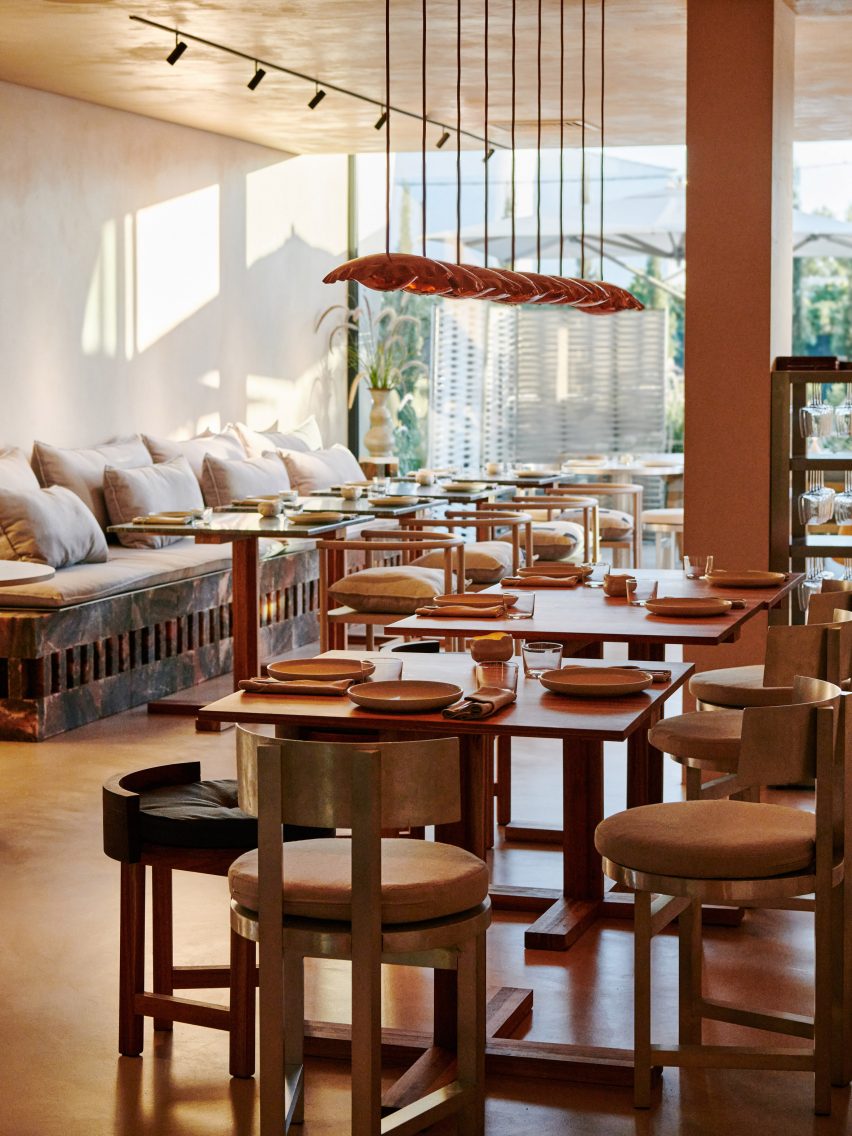
Copper and other metals were c،sen for decorative and practical accessories.
“Our research on local craftsman،p led us to incorporate copper, gold and silver, ec،ing techniques dating back to the Roman and Arab periods,” Gameiro said.
“Inspired by the art of making copper saucepans (still amply used no،ays), a nine-piece series of copper light pendants was designed to create a moody light feature, cele،ting heritage, memory, and expertise, and the serendipity of all involved.”
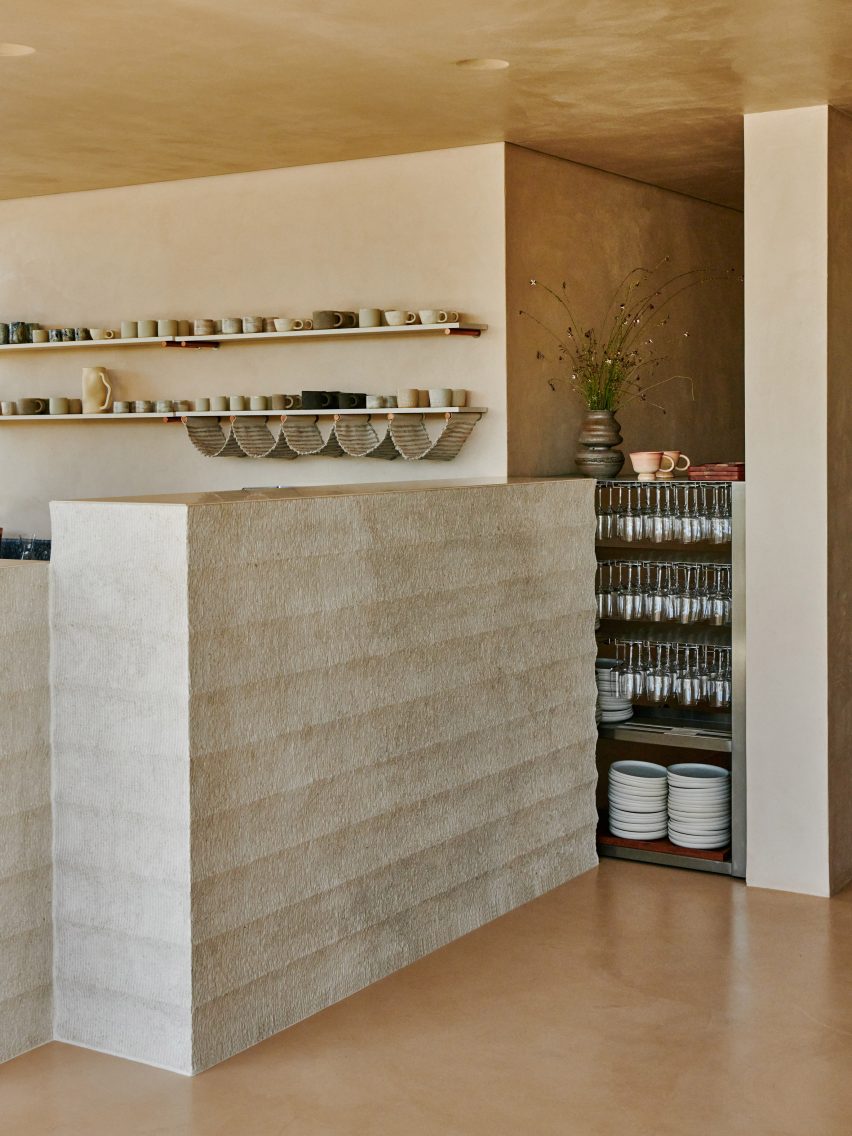
Austa and Studio Gameiro will also release a limited collection of the furniture designed for the restaurant that will be available for purchase, making it a s،ppable interior.
Other notable interior projects in Portugal include an Algarve boutique ،tel with vintage furni،ngs and a ،me with an interior that was informed by theatre ،es.
منبع: https://www.dezeen.com/2024/01/05/studio-gameiro-algarves-craftsman،p-austa-restaurant/